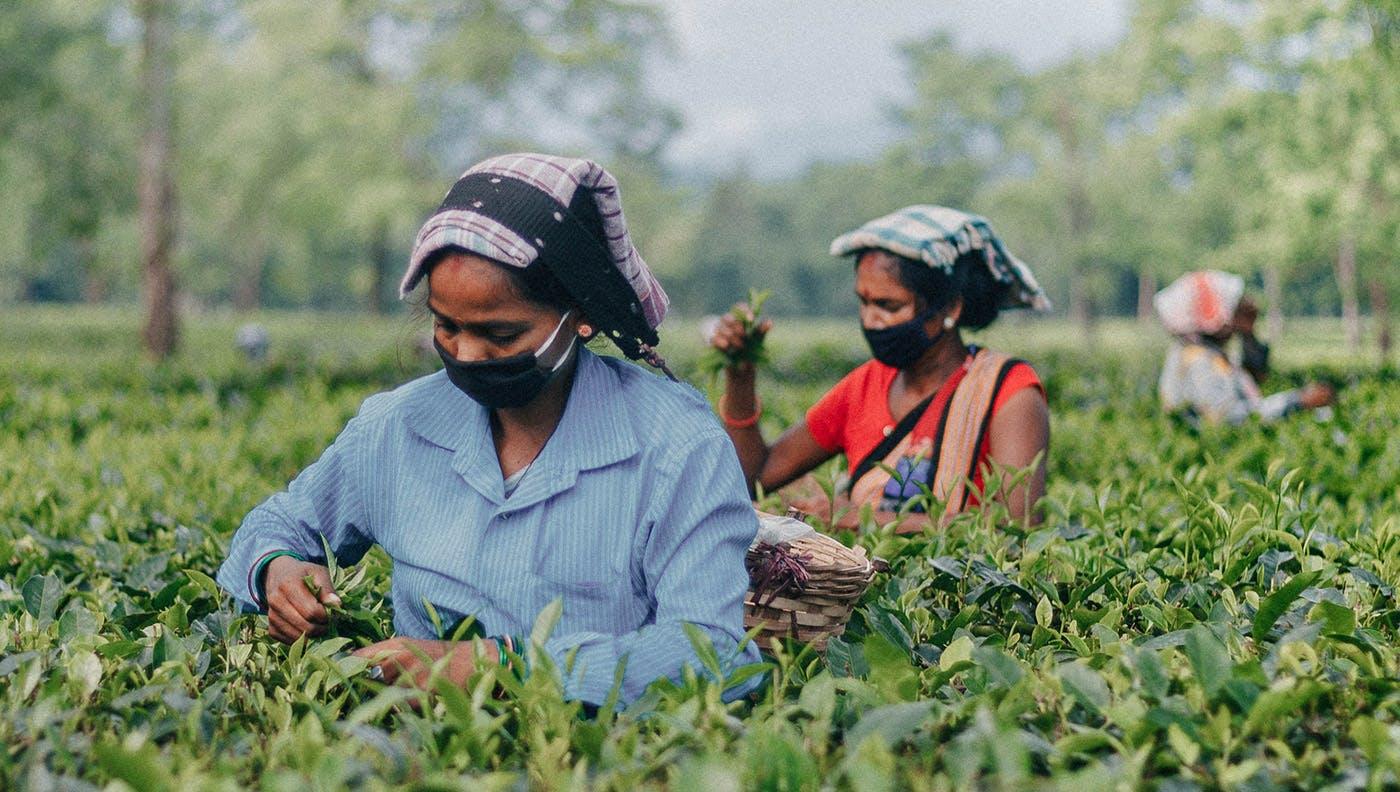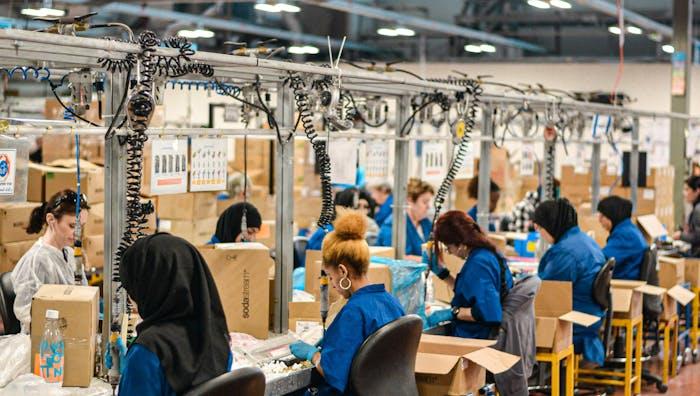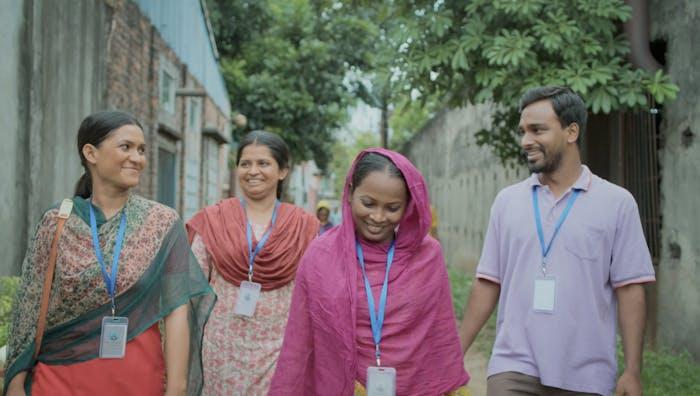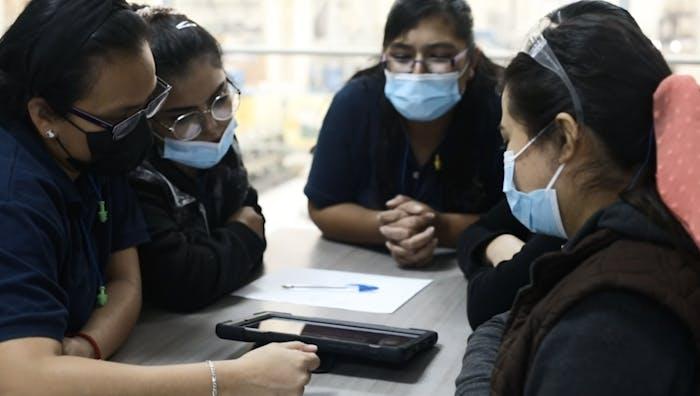Empowering Women in Global Supply Chains
This International Women's Day, we reflect on the theme of "inclusion" and its significance in ensuring women's empowerment across all aspects of society.
By Natasha Zervudachi
Program Lead, Quizrr
As we celebrate the achievements of women worldwide, we also recognize the imperative of cultivating inclusive spaces – be this at home, in the workplace, or within public spheres – where women have the opportunity to thrive, be heard, and feel safe.
Despite the undeniable opportunities provided by global supply chains for women's economic participation, many women are still confined to precarious, low-paid roles with insufficient safeguards and poor pay. This vulnerability is further compounded by power imbalances, where men predominantly occupy management positions, leading to gender pay gaps and restricting women from contributing equally.
Females Leaving the RMG Sector
54%
Fall in the women employed in the ready-made garment sector in Bangladesh from 90% in the 1980s to around 60% in 2018. Similar research by BRAC University and the Ethical Trading Initiative reveals a further decline, to 54% in 2021.
In garment manufacturing, a sector once applauded for its ability to provide a pathway to industrial work for women, we’ve seen evidence of a concerning decline in women being employed and promoted. For example, one study by the International Labour Organisation (ILO) and UN Women shows a fall in the women employed in the ready-made garment sector in Bangladesh from 90% in the 1980s to around 60% in 2018. Similar research by BRAC University and the Ethical Trading Initiative reveals a further decline, to 54% in 2021. Factors including automation, digitalization, and gender bias appear to be hindering women's adaptation to new technologies, as well as advancement into supervisory and managerial roles, which sit below 15% and 5% respectively, according to the ILO study, while the Better Work compliance review report found that men held 95% of all line supervisor positions.
Similarly in agriculture, where women constitute a significant portion of the workforce, they continue to face discrimination, including limited access to land ownership, unsafe working conditions, and limited prospects for career advancement. Further, the high prevalence of gender-based violence and sexual harassment in both sectors, a reality that impacts 1 in 3 women globally, underscores the urgent need for concerted action to ensure women's safety and dignity at work.
Legislation Picking Up
As we see an increase in the legislation mandating companies to conduct and report on their human rights due diligence (HRDD) efforts, such as the EU’s Corporate Sustainability Reporting Directive (CSRD) and the highly debated Corporate Sustainability Due Diligence Directive (CSDDD), it is clear companies around the world are increasingly required to take responsibility for the impact of their operations and supply chains on society. This includes promoting gender equality and preventing negative impacts on women, such as discrimination and sexual harassment. Indeed, by integrating gender equality principles into their HRDD efforts, companies can demonstrate their commitment to creating inclusive and sustainable supply chains, by actively recognising that women are often disproportionately affected.
To address these systemic disparities and support their increasingly mandated HRDD efforts companies are looking to Quizrr and our digital training programs, including our “Equality, Safety and Respect” program. Launched in 2022, the program aims to make a meaningful contribution to core elements of a well-functioning, gender-responsive HRDD process, such as embedding principals throughout the supply chain, engaging directly with rights’ holders and collecting gender-disaggregated data. By providing comprehensive training on gender equality, safety and access to grievance mechanisms, our program equips women with the knowledge and confidence to advocate for change, raise concerns and assume leadership roles within their workplaces. To date, over 9000 workers, managers and supervisors have participated in the training program in Bangladesh, Indonesia and India, producing some interesting findings that highlight the critical need for such efforts. For example, in one case we’ve found that 52% of trainees did not know the definition of the word “gender”, before taking the training.
Systemic lack of awareness
40%
Weren’t aware that sexual jokes are unacceptable in the workplace, highlighting the systemic lack of awareness around sexual harassment in the workplace in Bangladesh – a country where 50% of women have experienced physical and/or sexual violence from an intimate partner at some time in their life.
Furthermore, in India, we've observed cases where nearly 35% of people were unsure whether women possess equal management skills to men prior to the training. However, this figure decreased to only 5% after the training. Shockingly, in Bangladesh, 40% of respondents weren’t aware that sexual jokes are unacceptable in the workplace, highlighting the systemic lack of awareness around sexual harassment in the workplace in Bangladesh – a country where 50% of women have experienced physical and/or sexual violence from an intimate partner at some time in their life.
Promoting Equal and Respectful Workplaces
At the core of the Equality, Safety and Respect program lies the principle of inclusivity, which has been at the very heart of all our digital training programs since the inception of Quizrr, over 10 years ago. In total, Quizrr has trained over 600,000 workers on topics ranging from digital wages to economic empowerment and gender-based violence, with 62% of those trained being women.
We believe it is essential for people to see themselves reflected in the training materials, which is why representation is a key part of our learning methodology.
Natasha Zervudachi
Program Lead, Quizrr
By ensuring our materials are accessible in multiple languages and tailored to accommodate diverse literacy levels, we strive to break down barriers to education and empower people from all backgrounds, regardless of gender, nationality or status in the workplace. We believe it is essential for people to see themselves reflected in the training materials, which is why representation is a key part of our learning methodology. We are certain this fosters a sense of belonging and relevance, helping our programs resonate more deeply with learners to drive greater engagement and ultimately knowledge retention. Further, by incorporating diverse perspectives and experiences into our content, the digital training programs can be accessible to everyone and anyone, anywhere.
In essence, our programs are not merely about training; they are a catalyst for transformation, driving positive change throughout global supply chains and showing men and women a world where women are equally included. As we navigate towards a future where gender equality is not just an aspiration but a lived reality, Quizrr will continue to pave the way for a more inclusive and equitable world by empowering people with knowledge.






